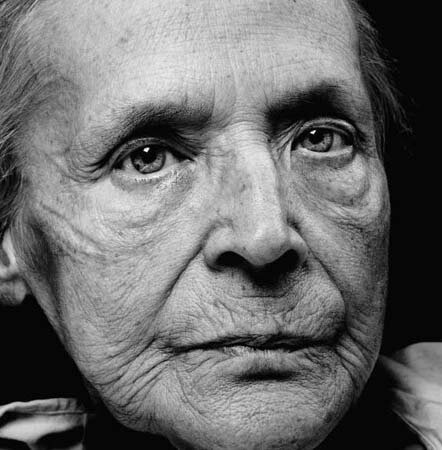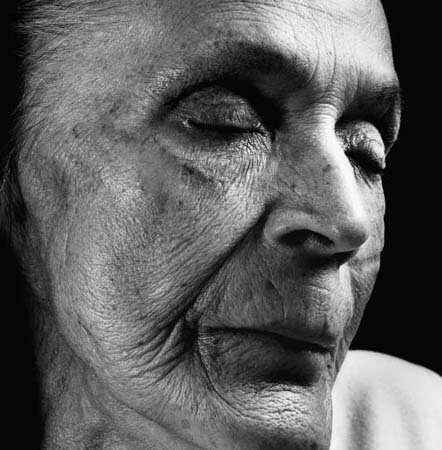I generally see my parents once or twice a year–once during the spring or summer, and once during the winter holidays. My parents are in their late 50′s, let’s say, age 58. Therefore, assuming they live to be 78, I will see them about 40 more times before they die.
Life Before Death: A series of photos of terminal patients before and and after their deaths.
Klara Behrens, 83
First portrait:
February 6 2004
Klara Behrens knows she hasn’t got much longer to live. “Sometimes, I do still hope that I’ll get better,” she says. “But then when I’m feeling really nauseous, I don’t want to carry on living. And I’d only just bought myself a new fridge-freezer! If I’d only known!”


Via daemonwolf.
Wise words from boffo:
If you choose friends and/or lovers who are constantly spewing drama, pain, negativity, and sadness, then your life will be filled with drama, pain, negativity, and sadness. But if you avoid those people and instead choose friends/lovers who generate joy, fun, and affection, your life will be filled with joy, fun, and affection. That’s way better.
It’s also a good idea to think about which category *you* fall into. If you’re constantly spewing drama, pain, negativity, and sadness, not only will you be compounding the drama, pain, negativity, and sadness in your life yourself, but you’ll also miss out on some wonderful friendships because the best people won’t be willing to hang out with someone like you.
I would add indifference to the list of things to avoid. I don’t think I have any friends who consistently bring negative emotion into my life. But in the past, I’ve sometimes pursued relationships too long, when it was clear that the person I liked didn’t feel the same way about me. The person did nothing bad, they just didn’t reciprocate. And sometimes I’ve neglected those who have been enthusiastic cheerleaders for me. It would be better to redirect my energies to nurturing my already healthy friendships, and to let the sickly ones quietly fade away.
To those to whom I have been a source of pain or negativity, my apologies. And to those I’ve neglected, I’ll try to be a better friend.
And to those who have been good friends to me: my thanks.
“In these moments of peace, deprivation seems a strange sort of gift. I find food in a couple hours of fishing each day, and I seek shelter in a rubber tent. How unnecessarily complicated my past life seems. For the first time, I clearly see a vast difference between human needs and human wants. Before this voyage, I always had what I needed — food, shelter, clothing, and companionship — yet I was often dissatisfied when I didn’t get everything I wanted, when people didn’t meet my expectations, when a goal was thwarted, or when I couldn’t acquire some material goody. My plight has given me a strange kind of wealth, the most important kind. I value each moment that is not spent in pain, desperation, hunger, thirst, or loneliness.”
Steven Callahan
Adrift: Seventy-six Days Lost at Sea
He who is ever brooding over the result, often loses nerve in the performance of duty. He becomes impatient and then gives vent to anger and begins to do unworthy things; he jumps from action to action, never remaining faithful to any. He who broods over results is like a man given to the objects of the senses; he is ever distracted, he says good-bye to all scruples, everything is right in his estimation and he therefore resorts to means fair and foul to attain his end.
Ghandi
Quotes from How you can practice non-attachment in your daily life. by Adam Khan
“Don’t be sorry. We are all dying Jack. It’s just that some of us are dying a little faster. The key is to not live your life as if you are already dead.”

